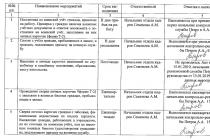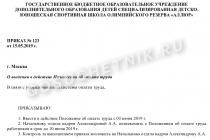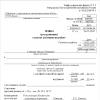It is important that I will write about Minsk, and not about the whole of Belarus. What is written below is only my vision of the situation, perhaps somewhere I did not see everything.
If you have any questions, write in a personal or in a comment to the post.
IT and job search
There are about 10-15 strong IT companies in Minsk with the Moscow salary level. All of them are presented on our classic job search sites. Basically here, of course, something related to the web and outsourcers. Often and successfully relocate employees to Minsk.If you come from Moscow, no one looks at you as a "specialist from Moscow", you will be on the same level as the rest. But! There is a clear shortage of qualified employees - this is a fact.
Another very important fact: the domestic market of Belarus is negligible compared to the domestic market of Russia. This means that they are looking for a client here "over the hill" and are not spoiled for easy budgets. The level of culture of production and products here is also high and modern. And the level of customer service, the level of ability to work at the proposal stage, etc. is higher than in Russia (apparently due to the search for customers in Europe).
Respectively, English language- almost the norm for local IT workers, keep that in mind.
In my case, I first found, and only then moved. I think this is the best option.
Legal side
Everything is very simple here, and comes down to a few sequential steps.1. You must rent any accommodation under a rental contract. Almost everyone who rents an apartment themselves does not mind doing it legally. You agree on a price, then go to the local (each district of the city has its own) housing department, take model form contract, sign it from both sides. There were no queues, the employee was aware of all the nuances, told everything in some detail.
A common practice is to enter into the contract a lower cost of renting housing than it is. This is done for the sake of lowering the owner's income tax, it is worth discussing such things in advance. Who actually pays this tax?
2. Having received a rental agreement in your hands, you can officially find a job. In short, at this stage, the employer signs an employment contract with you.
3. Next, you need to take a cardboard folder with the heading “Case”, a couple of photos, a copy of the rental agreement, your passport and employment contract and go to the local branch of the FMS. Here, too, I did not notice any queues. Everything went quickly, but I had to pay a fee of about $40.
4. After about 10 days, all in the same FMS, I received a small green piece of paper confirming my registration. It is given for a certain period, in my case - a year. I took a copy of this registration to work.
No one on the street has ever asked for any documents or registration. There are much fewer police officers here.
The only bonus of this registration was the opportunity to buy a “normal” local tariff of a mobile operator, instead of a “guest” one, which is not very profitable.
Why Minsk?
Before moving here, I visited this city several times and I liked it. I was well aware that I didn’t see all the insides and stuff, so it was a gamble in many ways, but in the end I’m very glad that I did it. I wanted a quieter, cleaner, well-groomed city - and I got it. In addition, a great opportunity to grow as a specialist in a new place of work.On the other hand, I did not want to go far, yet relatives and friends are an important part of my life. And here Minsk looks like a very tempting idea. What you need is almost the same mentality, but a little more than Europe.
It's hard to explain, on the one hand, everything here is very similar to my house, as if you went to a neighboring city in Russia, on the other hand - "the devil is in the details."
People
Compared to the same average Muscovite, the average Minsker is a little more hardworking, a little less aggressive, a little more calm. Add more modesty here (until I saw the "golden boomers" and tinted "bass car boys"). Plus, it's worth adding that the locals are a bit quieter. There is something in them from the Baltic peoples in the good sense of the word.In general, there is one word in the Belarusian language, the translation of which I cannot literally say, and so far no one has been able to really do it for me. This word is “pamyarkouny”. It sounds, of course, hackneyed, but the meaning of the word must be felt. And if you feel the significance, it means that you have at least a little understood the features of Belarus.
People here lead a more measured and less hasty life. When I walk down the street, my speed is 15-20 percent higher than the rest (now this is already passing). I can’t say that I see more smiles, but I definitely see less sullenness in faces.
Language
The Belarusian language is dying out - this, unfortunately, is a fact. Almost everyone I've asked says that this has been going on for a long time and has become just a natural process. The native language is known in the villages and in academic circles. This is how the gap turned out.You will not have any problems if you do not know the language, although many names are written in Belarusian. If you take a word without context, it is sometimes difficult to translate, but the meaning is always clear in the context. Haven't used the translator yet. Many Belarusians asked me if their language seems funny to them - for some reason it doesn't seem to me. The language is like a language, but it still looks more like Ukrainian or Polish, it seems to me.
Prices
If you want to go to Minsk because of its cheapness, then it's too late. Prices for products, goods, and services (with the exception of) are not much lower than in Moscow. True, I would like to add that there is one difference in relation to food. Very tasty local food here. For example, all sorts of "Danones" stand in the store and nervously smoke.Although this is not about prices, but I wanted to write about it. Trams, trolleybuses, computers from customs officers and much more - all of this is locally produced. MAZ works, farmers come to the market.
At first there was a complete removal of the brain with prices. Now I'm getting used to it. In the simplest case, you need to divide by 10,000 to get the price in US dollars. By the way, it's very cool if your salary is tied to the dollar in Belarus. Inflation is still noticeable here. For example, I save money and keep it not in local currency.
Housing
Renting an apartment in Minsk is not a problem now. Constantly appear interesting offers and leave very quickly. What is the reason for such a boom - I do not know. A good odnushka renovated, in the center, next to the subway costs $500-$600. It is generally considered not cheap. Can be found for $200-$300, but with a “Soviet” renovation and not in the center. They prefer to receive rent in dollars. I recommend looking for housing with an agent, he will take half the cost of a month. If you start looking for yourself, then you will get tired of traveling on offers. Oh yes, you can always bargain, it's normal here.But the "communal" pleases. The entire communal apartment for a one-room apartment, including a telephone, costs about $35. The streets and yards are clean, the garbage is taken out, in general, I have not encountered any problems here yet. I pay all utilities online. This is convenient and easy here.
Prices for "buy" housing are comparable to those near Moscow. Why and who buys - I do not know. Mortgages are not given in Belarus now.
Public transport
According to my calculations, it is at least twice as cheap. Runs on schedule and is comfortable. Although the intervals between trains in the metro surprised me at first and was not familiar, as was the depth of the stations (it seems that I just went down into the underpass) - hence, by the way, another culture of behavior on the escalator.About the subway. Probably, it rarely happens that during peak hours there is no free space. And the point is not that I occupy it, but that they sometimes still remain.
That's just standard Google Maps and Yandex Maps do not want to build routes for public transport in this city.
I often take a taxi, it is cheap here and very convenient to call. Never waited more than 5-10 minutes anywhere in the city.
car traffic
Cars are much smaller. What local drivers consider a traffic jam, we consider slow traffic. Apparently hence the other culture of driving - less aggressive. No, really, "Muscovites" can be seen immediately. There are almost no VAZs here, it turns out to be more profitable to buy a used foreign car. And drivers let people pass at the crossings, even in the very center. The pedestrian really has an advantage here. There are no problems with parking in the yards, but this is not because of the thoughtfulness of the yards, but because of the number of cars.I almost never saw such a chip as to stake out a place in the yard, only next to the institutions.
Bicycles
It seems to me that there are much more cyclists here than in Moscow. On the one hand, it is more convenient to move around the city - traffic is easier, on the other hand, the eternal problem of curbs.By the way, a very steep, modern bike path runs through the whole of Minsk from northwest to southeast. About 30 km long along the Svisloch River. You can already buy a bike just for the sake of this bike path.
Photos from the bike path




Literally after 20 minutes of driving you will see a forest, a swamp, and grazing horses. At first, I couldn’t even believe that just a couple of kilometers from me lives somewhere Big city. Very picturesque places.
By the way, since there are slightly different laws here and there really is consumer protection, after buying a bike, the first MOT for a bike is free.
But in this photo we are renting for a “bicycle license”, which we received at one of the events.

And yet, today, 20 minutes by bike from the center, in some fields I saw live deer, peacefully rushing about their business. The place where this happened can be found on link.
Services
Competition among local entrepreneurs is less than in Moscow. This greatly affects the level of service. No, they won’t be rude, but no one will beg you for anything. Everything takes longer (the slowest McDolds in the world, it seems to me, is in Minsk).Probably comparable to provincial cities in Russia. Companies that start working on the service are immediately noticeable.
Typical story. I call a taxi, I say that I'm standing at shopping center such and such, she asks for the address, I call. And I must say, this shopping center is a well-known point in Minsk. The girl in a very dissatisfied voice says that this shopping center has a different address.
Yes, you're right, maybe I'm wrong.
- First figure out where you are, then call - and hangs up.
I smiled and called another taxi.
Internet
4G is not. 3G works worse than in Moscow, it is very noticeable by how the phone's battery runs out. The coverage area itself is good. You can check mail, social networks - almost anywhere.And here home Internet- trouble. It is almost twice as expensive here, not everywhere there is a dedicated line, ADSL is very popular. I think that this is temporary. However, there is some progress in this direction. Now for a 10-ku (which is systematically reduced or falling), I pay about $25.
If you rent an apartment, immediately find out about this. Some houses don't even have ADSL and never will. Moreover, this is not related to the year of construction.
Greenery
Minsk is green and clean. The heat here is easier to bear than in Moscow. And they clean not only the central streets, but even the fields outside the city. Now I am very afraid that the city will begin to grow according to the principle of Moscow - to compact and cut down everything. There are wide streets, a lot of space. There is where to swim even within the city, with showers, buoys and more.The parks here are truly islands of nature.
I have not yet figured out whether people really litter less, or they clean more often, or maybe both.
Conclusion. Worth it or not?
It is clear that all this is individual and everyone must answer this question for himself. But Minsk is definitely great modern city where you can live comfortably and earn money. It's not a radical change of culture, it's just an opportunity to live in a nicer place. There will always be more money, opportunities and speed in Moscow. Minsk is not suitable for everyone - but this, I think, is good.P.S. A few observed facts
- Very few redheads
- Few men have beards
- No beggars and homeless people to be seen
- Less urban lunatics and freaks
- 4 hours by train to Vilnius
- There are significantly fewer non-working holidays here.
And the reputation of the leading "IT-country" in the Eastern European region has firmly established itself in the world. According to the Global Services 100 rating, Belarus ranked 13th among the 20 leading countries in the field of IT outsourcing and high-tech services. In addition, the TOP-100 of the world's largest companies in this area included three companies with Belarusian roots: EPAM Systems, IBA Group and Intetics Co. Belarus ranks 48th in the UN IT rating.
Direction of development software has existed in the republic since 1998. However, September 2005 is considered the key “reference point” from which the development of the IT sphere in Belarus began, when the Decree of the President of the Republic of Belarus No. 12 “On HTP” laid down legislative basis For successful work"Belarusian Silicon Valley" - Hi-Tech Park - and attracting investment in the software development industry.
Today, Belarusian companies operating within the HTP are distinguished by progressive management and effective marketing solutions. The industry is characterized by client maturity, the complexity of projects being implemented, a global service delivery network, a diverse portfolio of products and services, and the ability to work in niche markets.
Achievements of the Belarusian Hi-Tech Park
In September 2012, the HTP announced the first billion dollars earned. And by 2020, according to forecasts, this amount will come to the budget from HTP residents annually. According to the forecast of the International Finance Corporation, by 2020 the income of the IT industry in Belarus may reach $3-4 billion, or 4-5% of the country's total GDP in 2012. During the existence of the Park, with the participation of foreign investors, about 6 thousand jobs were created.
Today, 49% of HTP residents are companies with Belarusian capital and 51% with foreign capital. At the same time, experts predict an increase in the number of companies with foreign capital, since today ICT is one of the priority areas for direct foreign companies.
80% of the software produced in the Park is exported. 45% is shipped to the USA and Canada, 30% to European countries, 20% to Russia and the CIS.
In terms of the volume of exports of computer and information services per capita, Belarus occupies a leading position in the region of Central and Eastern Europe. This figure was over $35 per person in 2012. At the same time, the indicator of Belarus exceeds the identical indicators in Russia and Ukraine by two or more times.
software consumers, developed by the residents of the High-Tech Park, became well-known world corporations, automobile concerns Peugeot (France), Mitsubishi (Japan), media holdings British Telecom (Great Britain), T-Mobile (Germany), Reuters (Great Britain-USA); fuel and energy concerns British Petroleum, (Great Britain), Rosenergoatom, RAO UES, London Stock Exchange, World Bank, Deutsche Bank, Central bank Russian Federation, world famous commodity producers Coca-Cola, Procter & Gamble, Colgate-Palmolive (USA), Samsung (Korea).
Options for investing in the Belarusian IT industry
Significant investments can be made profitably in Belarusian IT projects cash. The main foreign investors in the Belarusian IT-sphere are companies from the USA, Great Britain, Israel, Germany and Russia.
According to representatives of foreign companies, foreign venture funds are ready to invest up to $1 million in the development of IT projects, and the initial stage of project implementation is of greatest interest to them. Thus, in 2012, the Hi-Tech Park (HTP) for last year$62.5 million of foreign direct investment was attracted.
To date, the most common option for investors to come to the Belarusian IT industry is to create new company for software development in Belarus "from scratch". In 2012, the number of HTP residents was replenished by 13 such companies and reached 118 organizations.
Another investment option is to attract specialized strategic investors who specialize specifically in the IT field. In this case foreign companies enter the market by acquiring Belarusian businesses.
Another example of attracting investment was the IPO of EPAM Systems on the New York stock exchange. In the first hour of trading alone, these shares rose in price by 20% - from $12 to $14.4 per share.
Climate for investors
According to the conditions for Park residents, enshrined by Presidential Decree No. 12 in 2005 and valid until 2020, the HTP is exempt from paying taxes, fees and other obligatory payments to the republican budget, state targeted budgetary and extra-budgetary funds paid from proceeds from the sale of goods, tax on profit and VAT from the sale of such products, land tax for the construction period (up to 3 years) and real estate tax.
Benefits include exemption from tax customs duties and VAT on the import of goods necessary for carrying out activities, and reduced to 9% income tax on employees. These benefits are provided to the residents of the Park, whose main activities are the development and implementation of information and communication technologies and software, both in the domestic market and for export. Benefits are available to 12 more high-tech areas of activity - from the creation of products for micro- and nanoelectronics to aviation and rocket and space technology.
Selected successful Belarusian projects
Information and communication technologies are also among the priority areas where it is planned to attract investments. The number of companies operating in Belarus and producing intellectual products that are in demand all over the world is growing rapidly.
In 2011, the massively multiplayer online game World of Tanks, developed by the Belarusian studio Wargaming.net, achieved a record officially registered by the Guinness Book of Records. The MMO action was able to simultaneously gather on one server the largest number of players in history - more than 90 thousand people. By the end of 2012, the authors of World of Tanks plan to receive $200 million in profit.
Among the Belarusian game developers, the company Viaden Media also stands out - the largest in the country in the field of gaming applications for mobile platforms and social networks. One of her latest programs is All-in Fitness, a top downloaded fitness app in dozens of countries around the world.
The positions of Belarusian developers are also strong in the category of applications for communication. For example, the authors of the popular Viber program, which competes with Skype in the mobile market, are Israelis. In Israel, the main office of the company is also located, the product of which is already used by more than 100 million people in the world. However, all Viber software development is carried out in Belarus. Among the main advantages of Belarusian programmers: the company's management highlights the ability to think and act not according to the textbook, to find non-trivial solutions.
Belarusian companies are traditionally among the leading providers of business solutions. Among the automated systems of the ERP class (enterprise resource planning) in the CIS countries, the product of the region's largest developer of ERP systems, the Galaktika Corporation, whose head office is located in the Belarusian capital, stands out. Today, the company's software is used by more than 6 thousand enterprises of the Commonwealth countries representing various sectors of the economy.

Established 20 years ago in Minsk, the alliance of IT companies IBA Group is today one of the largest developers of high-tech solutions and services in Central and Eastern Europe. More than 20 companies operate under the IBA brand in Belarus, Russia, Ukraine, USA, Germany, Great Britain, Czech Republic, Bulgaria, Kazakhstan and Cyprus.
The IBA Group portfolio includes over 1.5 thousand projects completed for customers on 5 continents and solving problems in various sectors of the economy, including information technology, telecommunications, transport and energy.
One of the leading players in the Belarusian IT market can be called EPAM Systems - the largest provider of services in the development of project (custom) software and solutions in Central and Eastern Europe. Established in 1993, today the company has offices in 12 countries around the world.
 The scale of the company allows us to work with the largest customers on the most complex and interesting projects, many of which are innovative in nature. A special place among EPAM projects is occupied by software development for the world leaders in the software industry. The company successfully cooperates with leading universities of our country. The result of such cooperation are joint IT laboratories.
The scale of the company allows us to work with the largest customers on the most complex and interesting projects, many of which are innovative in nature. A special place among EPAM projects is occupied by software development for the world leaders in the software industry. The company successfully cooperates with leading universities of our country. The result of such cooperation are joint IT laboratories.
Today, residents of the Hi-Tech Park, who are developing software products and providing IT services to clients from more than 67 countries of the world, is 751 companies.
If you are interested in finding a partner or an IT service provider, we suggest using the database of HTP resident companies.
Search by HTP resident companies
Softmax telemetry systems
The Softmax Telemetry Systems Company is a domestic software developer organization. The company was founded in 2012 and specializes in the development of software products, the provision of services for the implementation of automated systems in such areas as gas distribution, trunk transportation of gas, hydrocarbons and their products, and telecommunications. The work uses Java, C#, Objective-C, Swift, PHP, JavaScript, HTML, CSS, T-SQL, 1C, etc. More than 20 domestic and foreign enterprises cooperate with the company.
*INSTINCTOOLS
Development of software and web applications to order on an offshore model.
We provide teams of specialists to carry out the entire cycle of work related to software development: analytics, consulting, design, development, testing, documentation, as well as setting up business processes for managing IT projects.
*instinctools is:
· Stable teams, the possibility of direct interaction with specialists.
· Absolute transparency in work and daily reporting.
· Full adaptation and involvement in processes.
· A wide range of specialists from analytics to operations.
· Favorable rates.
· Open for visits to our offices.
· Information Technology
· Marketing and sales
health care
· Education
Cryptocurrency
Technologies:
Java frameworks
iOS/Android/Windows Mobile
Front End/UI Platforms
Blockchain Development
Go Programming language
They want a lot from us - we do more!
1C-Bitrix
The company has been operating in Belarus since 2013. The company has 7 employees, the main task is the publication of software Bitrix24 cloud service and boxed version, 1C-Bitrix: Site Management and 1C-Bitrix: Mobile application written in php, including their localization and marketing promotion. Products have Declarations of Conformity. The company's products are actively used by more than 8,000 customers throughout Belarus, including large retail chains, online stores, banks, service companies, manufacturing companies, car dealers.
ATON Engineering
ATON Engineering is a domestic organization - engineering and implementation. The company was founded in 2008, specializes in the adaptation and refinement of software products for computer-aided design, the provision of services for the implementation of CAD / CAM / CAE software products in industry, engineering development. Currently, the staff has 6 employees in Minsk. More than 50 domestic and foreign enterprises cooperate with the company.
IBA IT PARK
IBA IT Park is the leading Belarusian development center of the international holding IBA Group, which unites over 2600 professionals from more than 20 enterprises in 11 countries of the world with its head office in Prague (Czech Republic).
IBA IT Park (until August 2013 IT Park IP) was established in 2006 to expand the export opportunities of IBA Group and represent the interests of the holding in the HTP, of which IBA IT Park has been a resident since 2007.
IBA IT Park employs about 1,600 specialists with extensive expertise in the development and maintenance of software on IBM, SAP, Oracle, Microsoft, Check Point, PTC platforms and experience in international projects.
Main activities:
- Custom software development on Java/Web-platform
- Development corporate portals
- Localization, integration and vertical solutions on SAP ERP, SAP HANA, SAP S/4HANA
- Development of analytical systems, transaction processing systems and Big Data based on SAP HANA, SAP S/4HANA
- Migration and maintenance of business applications
- Design and development of software for the IBM Mainframe and FujitsuMainframe platforms, client-server architecture software for various platforms
- Solutions for enterprise asset management (EAM), retail banking, life cycle products (CAD/CAM/CAE and PDM/PLM), IT infrastructure (OSS/BSS), IT services (ITSM/ITIL), regulatory information (MDM/MDG), service technical support IT infrastructure users (ServiceDesk), maintenance and repairs (MRO), transport and transport logistics
- Systems electronic document management, business process management and corporate content(Workflow/BPM/ECM), electronic archives of documents
- Creation of data warehouses, business intelligence and budgeting systems (DWH/ETL/BI/CPM)
- Development mobile applications
- Data center services IBAGroup: hosting information resources, backup, archiving and data recovery.
QMS compliance with STB ISO 9001 and DIN EN ISO 9001 standards, information security– STB ISO/IEC 27001, software development and maintenance processes – maturity level 4 of the SEI CMMI® model.
IBA IT Park is the winner of the Prize of the Government of the Republic of Belarus for achievements in the field of quality and the owner of a special award in the nomination " Social responsibility"for "conducting a socially responsible business and creating conditions that ensure the social security of all stakeholders: personnel, consumers, partners, society."
IBA Group occupies a leading position in prestigious international competitions and ratings: TheGlobalOutsourcing 100 of the International Association of Outsourcing Professionals (IAOP), Software 500 of one of the largest publications in the global IT industry SoftwareMagazine, GlobalServices 100 of the GlobalServices publishing house, European IT & Software Excellence Awards of the European edition of IT Europa, GSA European Awards of the Global Sourcing Association, CEE Shared Services and Outsourcing Awards published by CEE BusinessMedia.
ITECHART GROUP
iTech Art Group is a leading software development and consulting company specializing in web and mobile programming. We offer our clients a traditional IT outsourcing model coupled with project-oriented services, which enables our clients to set up and coordinate a dedicated team in one of our development centers in Eastern Europe.
Over the past few years, the Belarusian artificial intelligence market has grown several times. What role do knowledge-intensive communities in Belarus play in the development of artificial intelligence, and why do other countries willingly cooperate with its developers and buy projects?
In short, the recipe for success lies in serious state support, and in return, the industry becomes an important column in the country's economy. In 2005, the High Technology Park (HTP) was founded in Belarus, which has since attracted about 400 residents involved in artificial intelligence and deep learning. For example, there are projects from the USA (including Silicon Valley), China, Cyprus, Norway, Israel, Great Britain, Austria, the Netherlands, France, and Russia.
Legislative and educational initiatives have become the basis of this success. For example, the Decree of the President of Belarus Alexander Lukashenko “On the Development of the Digital Economy”, signed at the end of 2017, served as a “green light” for the development of blockchain technologies. Elements of British law have been introduced and the activities of HTP residents have been expanded: now they can range from creating unmanned vehicles to supporting education from IT companies.
The effect of the 2017 decree was immediately noticeable: already in the first half of 2018, the Park's exports grew by a record 40%, excluding new companies. This is even more than in 2017, when for the first time in history, exports surpassed the $1 billion mark and grew by 25%.
In 2018, the Bulba Ventures fund was opened in Belarus, specializing in artificial intelligence (AI) and machine learning. It is noteworthy that one of its co-founders, Yuri Melnichek, previously invested in the AIMatter startup, which was acquired by Google in 2017. This year, the fund has invested in three projects: Friendly Data, Rocket Body and Wannaby. At the same time, retail startup Wannaby raised a significant amount of $ 2 million (in addition to Bulba Ventures, Haxus, a company specializing in computer vision and augmented reality for shopping, also took part in the round). A similar amount was raised by the parental control application Nicola from FaceMetrics from the Belarusian fund VP Capital and the Russian Larnabel Ventures.
Computer vision is becoming a worldwide trend. According to Wannaby co-founder Aleksey Melnichka, Google's purchase of startup AIMatter and Facebook's purchase of MSQRD symbolize the "heyday" of Belarusian AI technologies. After that, it became obvious that the Belarusian teams and products artificial intelligence demanded by large international corporations. The need for specialists has formed new professions data scientist, ML engineer (machine learning engineer), DL engineer (deep learning specialist). In addition to theoretical training, thematic events helped to grow these specialists: ODS meetups and Big Data User Group, Datafest , AI Day , AI hackathons , Datatons , as well as student laboratories at IT companies, thanks to which the diffusion of knowledge within the community has accelerated significantly.
Export orientation
Belarusian service companies turned out to be more in demand in foreign markets than in domestic ones. Even before the “AI wave” began, large foreign companies began to establish their R&D offices in Belarus (Profitero, IHS Markit, Work Fusion, Yandex, Teqniksoft). It was at this time that the Belarusian IT community realized that it was much more profitable to sell their products and technologies, rather than good engineers, to foreign projects. Thus, international outsourcing has become the main trend in the Belarusian market.
AI products developed in Belarus are used in healthcare, the automotive industry, Agriculture. The American startup Flo (an application for monitoring women's health) was founded by Belarusians and in two years attracted $18 million in investments from partners of the Mangrove Capital fund and the Flint Capital fund. The app is currently available in 20 languages on iOS and Android, with 60% of users located in the US and Europe.
Engineers from MapData, the Minsk R&D office of MapBox, have made significant progress: they use computer vision to recognize traffic conditions on a video stream. The Minsk office of Yandex is developing solutions for unmanned vehicles, speech recognition, and search technologies. Startup OneSoil helps farmers increase crop efficiency, plan agricultural activities and predict yields. To do this, the company uses neural networks, computer vision and machine learning algorithms that analyze satellite images. In one year, the company raised $500,000 in investments from Haxus, Bulba Ventures and investors Yury Melnich and Leo Lozner.
Perhaps, the Belarusian IT sector can serve as an example of how the state can help start-ups to give them the opportunity to grow, as well as to get a return on their own.
The Republic of Belarus is one of the countries where doing business in the IT sector has undeniable advantages. These benefits include not only benefits that are given residents of the High Technology Park. But what is also important is the availability of a qualified workforce, in the choice of which HR specialists specializing in this field will be ready to help. This publication of our blog, as well as other publications, links to which you will find at the end of this publication, will help you learn everything about the procedure for creating an IT company in Belarus.
The creation of an OJSC will be interesting large IT companies, which are going to subsequently make an initial public offering. However, it makes no sense for representatives of medium-sized businesses aimed at growth to create an open joint-stock company right away. It is easier, if necessary, to reorganize in the form of a transformation.
What to look for when drafting a bylaw?
The second important issue, not of a procedural nature, for the registration of an IT company in Belarus will be the development of a charter . Of course, it is worth noting here that there is no special charter for an IT company. However, there are a number of aspects worth considering.
Firstly, since the main value, along with employees, in an IT company are the results of labor - objects intellectual property. It is worth developing in the charter a special regime for approving transactions on the alienation of intellectual property. After all, sometimes it is difficult to find out whether this or that transaction is large. But all transactions, except for major transactions and transactions involving affiliated persons, can be carried out solely by the executive body of the company (more often the director acts in this role).
The charter may provide for a restriction for the head to carry out any transactions with intellectual property objects that entail their alienation or the issuance of an exclusive license. Having established that such transactions can be made only with the consent of the general meeting of participants or the board of directors.
Also, the charter of an IT company often requires the use of such mechanisms as the disproportionate contribution to the authorized capital of an LLC to the share of a participant or the number of votes, as well as a share in profits. The use of these mechanisms also requires legal literacy, otherwise certain provisions of the charter may be recognized as contrary to the law. Since the institution of options in the Republic of Belarus is developed only within the framework of the HTP, mechanisms for protecting the rights of founders-minorators are also in demand.
They can be made later, but remember that it can be harder to do later. Thus, registration of amendments to the charter is the prerogative of the head of the company. Which may not always have sufficient interest in this procedure.
What should be the size of the authorized capital?
There is no minimum charter capital for a limited liability company. However, the decision on the size of the statutory fund cannot be taken at random. A contribution to the authorized capital of a business company is the main mechanism for investing in a company at the initial stage of activity. It is especially important to correctly calculate the size of the authorized capital for a startup that does not yet have customers or secondary investors.
What about a loan agreement? So beloved by the Belarusian business, since it allows you to return the investments of the founders through the return of a tax-free loan. Everything would be fine, but it is worth remembering that the HTP may not evaluate an applicant with a negative balance structure. Therefore, if the registration of a company also involves joining the HTP, we advise you to make initial investments by contributing to the authorized capital of the company.
The founders of an IT company that does not plan to join the HTP after registration should remember that in the event of liquidation of a company with an outstanding loan, an object of taxation will be created as non-operating income. The arisen tax will definitely need to either be satisfied or go into bankruptcy with the possibility of attracting the founder and former leader to vicarious liability. to a newly created company is described in detail on this website.














